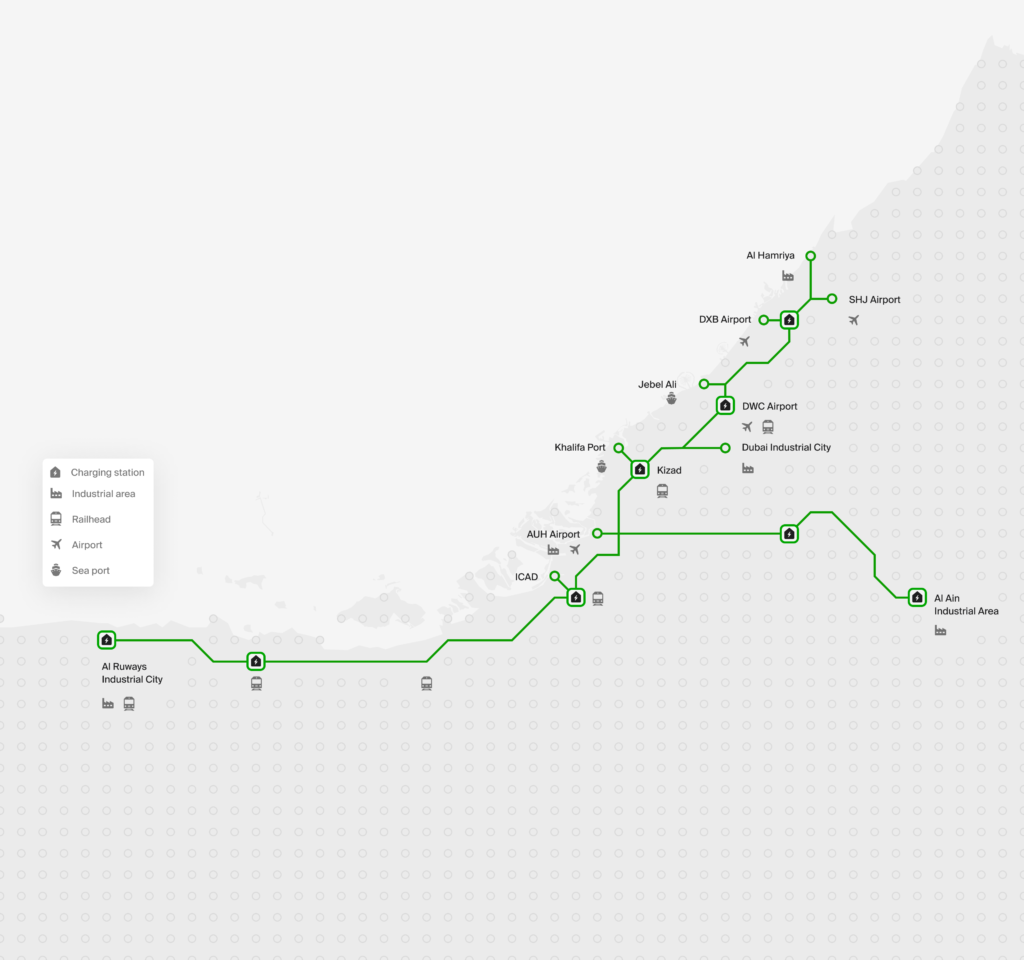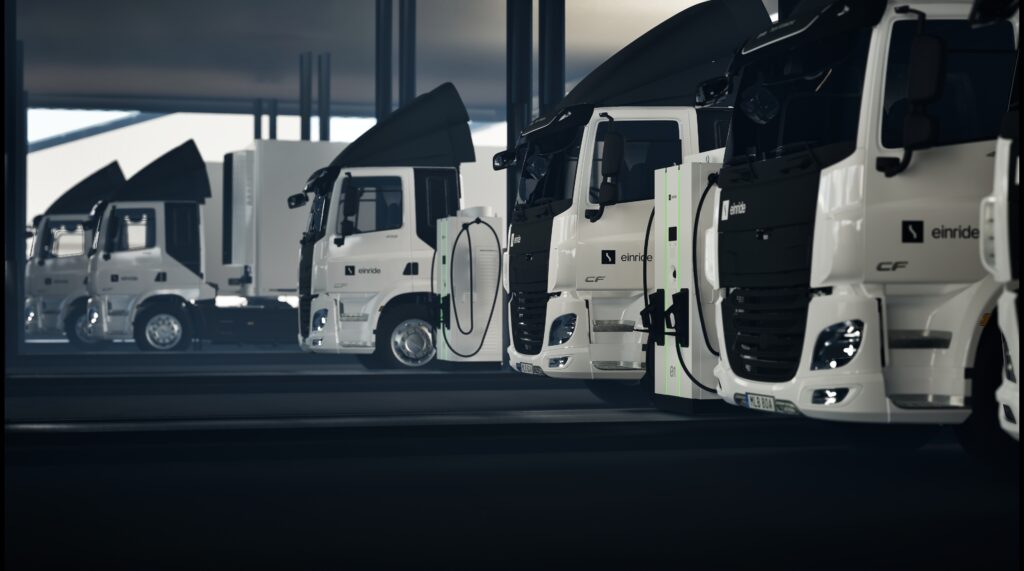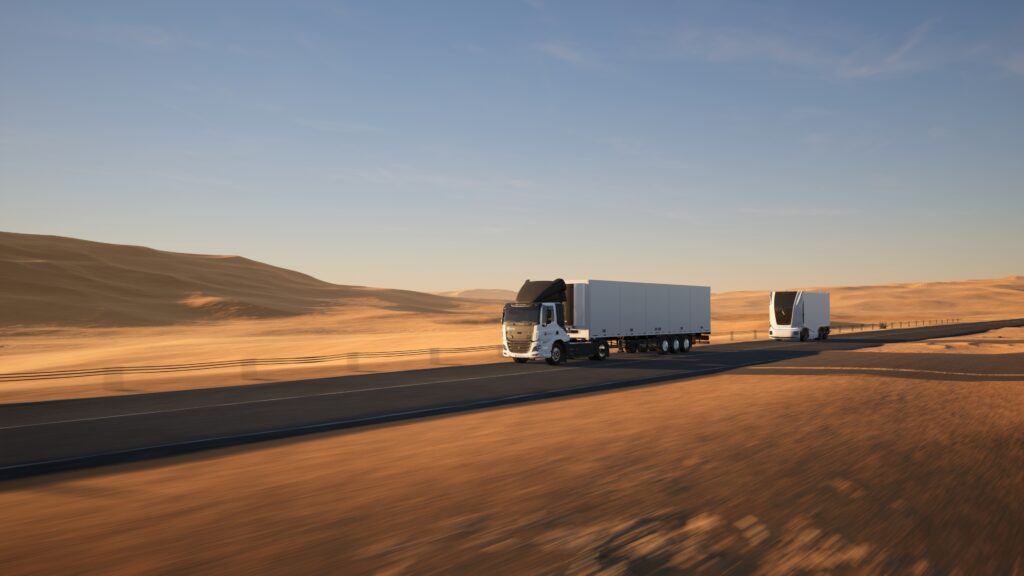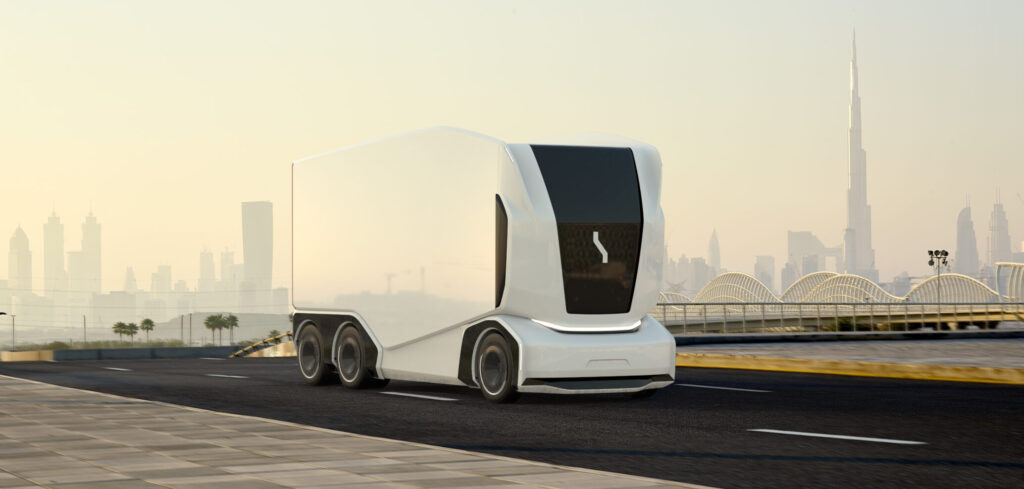Transportation company Einride has signed an MOU with the UAE government for the deployment of its ecosystem – autonomous, electric trucks, charging infrastructure and transforming technology – throughout the country’s Falcon Rise grid region to accelerate the country’s move to sustainable shipping.
Einride’s full freight mobility will be integrated across the Falcon Rise grid, covering a 550km area across Abu Dhabi, Dubai and Sharjah and comprising 2,000 electric trucks and 200 autonomous trucks alongside eight charging stations with more than 500 charging points.
The entire freight ecosystem is planned, optimized and monitored using the Einride Saga platform, and as it is based on a grid system, road freight inefficiencies are removed and emissions are reduced.
“This collaboration gets to the core of what Einride provides – the transformation to effective and sustainable shipping that is fully electric,” said Robert Falck, CEO and founder of Einride. “By partnering on this deal, we’ll be able to showcase how entire regions are able to make the switch in an intelligent and cost-effective way.”
 “The establishment of the UAE Falcon Rise grid represents a significant milestone in our journey toward sustainable and intelligent transportation,” said HE. Sharif Al-Olama, Undersecretary for Energy and petroleum affairs, Ministry of Energy and Infrastructure (MOEI). “Through this collaboration with Einride, we aim to leverage the latest technological advancements to reduce emissions and enhance the efficiency of freight operations across the region.”
“The establishment of the UAE Falcon Rise grid represents a significant milestone in our journey toward sustainable and intelligent transportation,” said HE. Sharif Al-Olama, Undersecretary for Energy and petroleum affairs, Ministry of Energy and Infrastructure (MOEI). “Through this collaboration with Einride, we aim to leverage the latest technological advancements to reduce emissions and enhance the efficiency of freight operations across the region.”
 “We look forward to collaborating with the UAE government to build a more sustainable and resilient transportation system, with this partnership enabling this change to be effectively deployed at scale,” said Robert Ziegler, general manager, EMEA of Einride. “Einride’s offering will unlock new opportunities within the region by introducing a new way of shipping that is electric, autonomous and digital.”
“We look forward to collaborating with the UAE government to build a more sustainable and resilient transportation system, with this partnership enabling this change to be effectively deployed at scale,” said Robert Ziegler, general manager, EMEA of Einride. “Einride’s offering will unlock new opportunities within the region by introducing a new way of shipping that is electric, autonomous and digital.”
The Falcon Rise project is Einride’s first in the region and will be continuously developed over the next five years.



